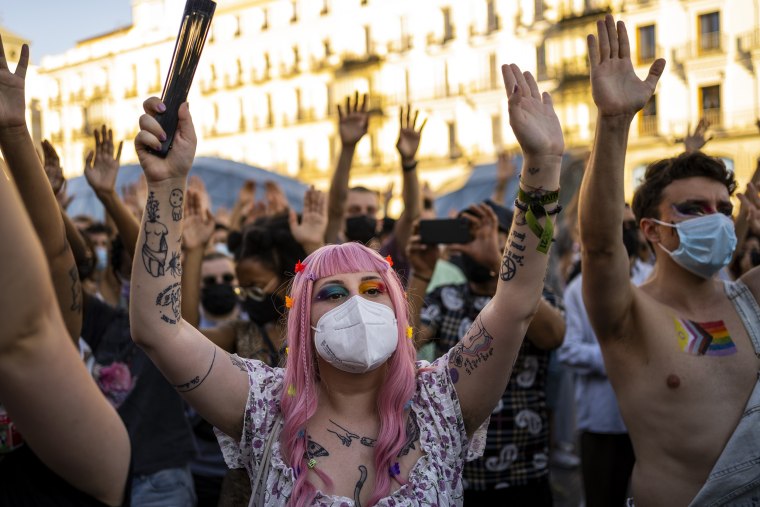Chile legalizes same-sex marriage in historic vote
Chile’s Congress passed a law to legalize same-sex marriage on Tuesday, in a milestone for the conservative South American nation after a decade-long legal battle and with the country delicately poised ahead of a crossroads election this month.
“Today is a historic day, our country has approved same-sex marriage, one more step forward in terms of justice, in terms of equality, recognizing that love is love,” Minister of Social Development Karla Rubilar said after the vote.
Chile’s Senate and lower house of parliament both voted heavily in favor of the bill on Tuesday, which had previously been partially approved in November before the Senate sent it back to a committee to clarify ambiguities.
Current President Sebastian Pinera, who will leave office in March, has backed the bill and is expected to sign it into law.
The vote culminates a process that began in 2007, when then-President Michelle Bachelet pushed Congress to pass a same-sex law. Chile is now poised to join 30 other countries where same-sex marriage is legal — including Argentina, Brazil, Colombia, Costa Rica and Uruguay in Latin America — according to the Human Rights Campaign.
“It is hard to believe that today we are taking this step,” said Rolando Jimenez from LGBTQ rights group Movilh, one of the major backers of the bill and which helped spearhead Chile’s push to legalize same sex marriage for more than a decade.
Chile will elect a new president on Dec. 19, choosing between progressive Gabriel Boric and social conservative Jose Antonio Kast, a practicing Catholic. The two offer wildly different visions for the country’s future.
Recommended
OUT NEWSPastor who performed in drag on HBO’s ‘We’re Here’ leaves church
U.S. NEWS$2.2 million settlement for family of transgender woman who died in Georgia men’s prison
While Kast disagrees with same-sex marriage, he had said he would have signed the bill into law anyway had it been passed by Congress during a potential presidency of his.
Chile has long had a conservative reputation even compared with its deeply Catholic Latin American peers. Still, a strong majority of Chileans now support same-sex marriage and Chileans have shown signs of moving left on social and cultural issues in recent years.
Civil unions have been permitted in Chile since 2015, which affords same-sex partners many but not all the benefits of married couples, like the right to adoption.



